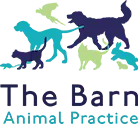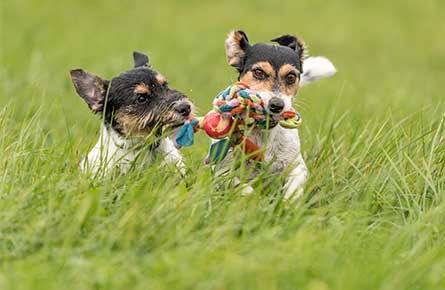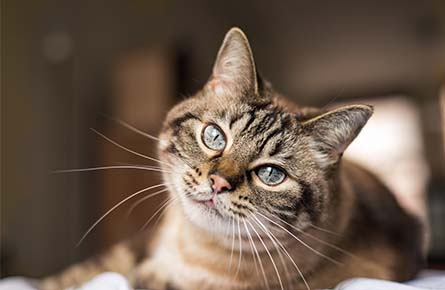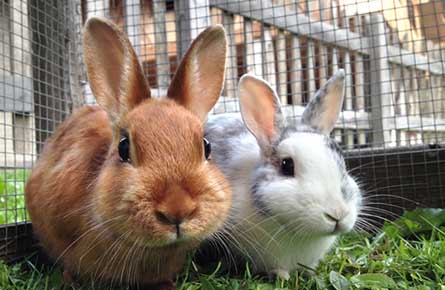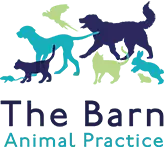Your pet’s dental care routine is a vital part of their health and well-being, ensuring that all preventative methods of treatment are being used will help to keep your pets mouth and teeth in top condition.
Much like humans, pets can develop a build-up of tartar, leading to tooth decay and gum disease. Small techniques, like brushing your pets’ teeth once or twice a day can help improve their oral hygiene and keep dental disease at bay.
At The Barn Animal Practice, we are here to help you with your pet dental care routine, ensuring that your pet’s oral hygiene is good, and you are able to maintain this regularly.

Signs of Poor Dental Health in Pets
There can be a number of signs that indicate poor dental care in rabbits, cats and dogs, including:
- Bad breath (halitosis)
- Visible tartar build-up in teeth (brown colouration on the teeth)
- Discoloured teeth
- Loose teeth
- Red or inflamed gums (gingivitis)
If you notice a change in your pet’s behaviours, or that they are showing signs of discomfort in the mouth, speak to our team at The Barn Animal Practice today and book your pet dental care appointment with us.
Book a Vet Consultation today!
Signs of Severe Dental Disease in Pets
When poor pet dental care, this can lead to severe dental disease developing in your pet’s mouth. Signs of this can include:
- Drooling
- Slowness or reluctance to eat
- Bleeding from the mouth
- Chewing on one side of their mouth
- Dropping food from their mouth when eating
- Swelling around the mouth
If you notice any of these signs in your pet, speak to our team at The Barn Animal Practice immediately. Severe dental disease can be uncomfortable for your pets. Earlier identification can ensure that they receive the right pet dental care and treatment from our team.
Our team of veterinary professionals at The Barn Animal Practice in Basingstoke are happy to answer your questions or advise you on the recommended products or dental diets for your pet. Book your consultation online today and ensure your pet dental care routines are benefitting your pet.
Book a Vet Consultation today!
We are happy to answer any questions you may have, as well as advising you on the recommended products or dental diets for your pet. Contact your nearest Barn Animal Practice branch in Basingstoke for a consultation.
